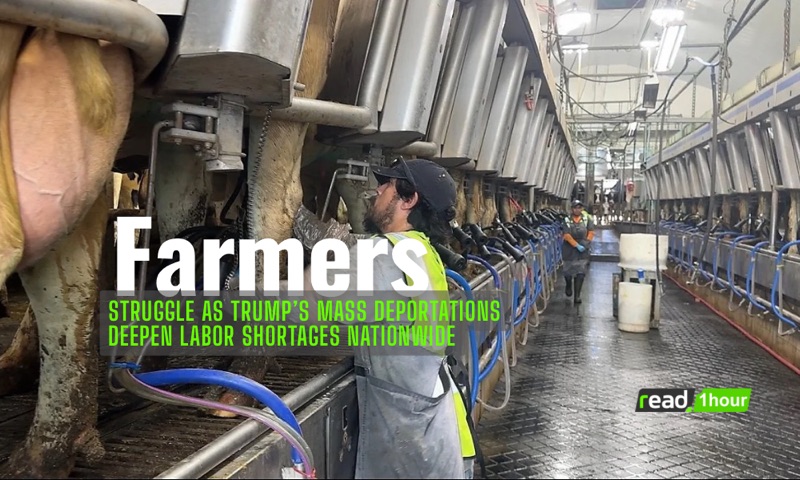Farmers Struggle As Trump’s Mass Deportations Deepen Labor Shortages Nationwide
read1hour delivers latest news, stock market updates, gadgets, mobile reviews, and trending stories daily.
Farmers across the United States are sounding the alarm as former President Donald Trump’s mass deportation policies continue to shrink the agricultural workforce. With Congress far from reaching an immigration deal, growers say the labor shortage has reached a breaking point, threatening food production, prices, and the stability of rural economies.

Agriculture is one of the most labor-intensive sectors in the country, heavily reliant on immigrant workers for planting, harvesting, and processing. According to industry groups, as many as 50% to 70% of farmworkers are immigrants, many lacking permanent legal status. Trump’s immigration crackdown has led to thousands being detained or deported, leaving farmers struggling to find replacements.
In California, Florida, Texas, and the Midwest, crops are rotting in fields due to the lack of available hands. Farmers interviewed by regional news outlets say they cannot find enough local workers, even after raising wages. The work is physically demanding and seasonal, making it unattractive to many U.S.-born workers.
“Labor shortages are hitting us harder this year than ever before,” said an Iowa farmer who grows corn and vegetables. “If Congress doesn’t fix this, American food production will suffer.”
Despite growing pressure, Congress remains deeply divided on immigration reform. Republicans are pushing for stricter border security, while Democrats demand protections for undocumented workers, particularly those in essential industries like agriculture. With the two sides far from agreement, no comprehensive solution appears likely in the near future.
The lack of action is creating ripple effects across the economy. Food distributors report delays, grocery stores are seeing rising prices, and restaurants are facing higher supply costs. Economists warn that if the labor situation worsens, Americans could see significant price increases on fruits, vegetables, and dairy products.
Farmworker advocacy groups have sharply criticized the deportation policies, saying they create fear within immigrant communities and destabilize essential labor forces. They argue that immigrants, particularly those with years of agricultural experience, are indispensable to maintaining the nation’s food supply.
On the other side, Trump and his supporters maintain that stricter enforcement is necessary to uphold the law and prioritize U.S. citizens for jobs. However, agricultural groups counter that the jobs being vacated by deported workers simply are not being filled by Americans, regardless of policy intentions.
Farmers are urging Congress to develop a long-term, workable immigration system that ensures a stable workforce. Proposed solutions include expanding the H-2A temporary agricultural worker program, offering legal status to long-term farmworkers, and creating a simplified visa system tailored to agricultural needs.
Until lawmakers take action, farmers warn that the season ahead may bring even more challenges. With labor shortages intensifying and no immediate fix on the horizon, America’s food supply chain faces one of its most serious tests in decades.
